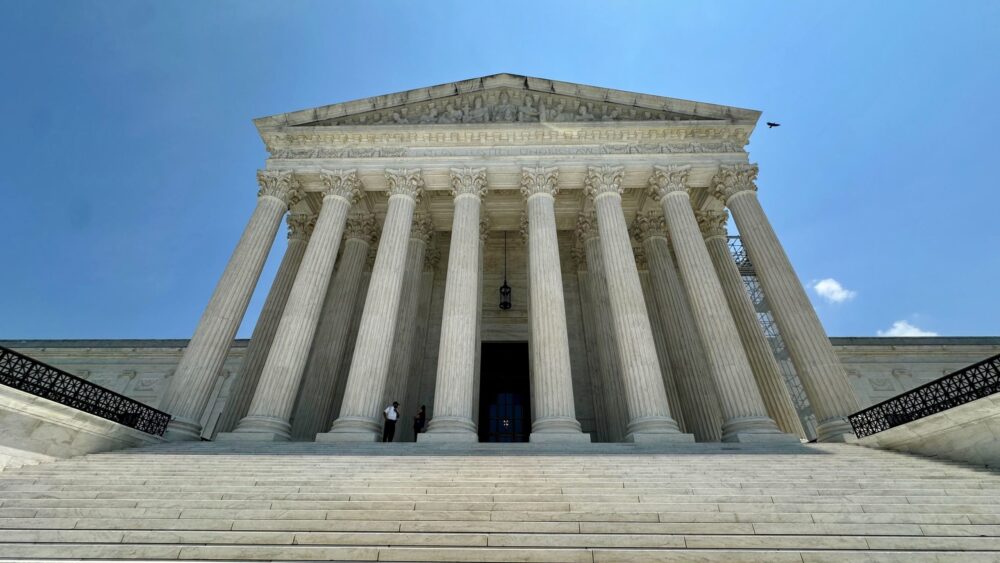Washington, D.C. – The Center for Learner Equity (CLE) strongly opposes the administration’s recent action of gutting the key offices that oversee special education programs. Decimating these offices directly harms the education of more than 8 million students with disabilities across the nation. On Friday, October 10, 2025, the entirety of the Department of Education’s special education and K-12 education infrastructure, from the Office of Special Education Programs to the Charter School Program Office, was rendered non-functioning through massive layoffs. This reduction-in-force, or RIF, makes it nearly impossible for the Department to fulfill its duties on behalf of students with disabilities, their families, and schools. “The education of students with disabilities is a nonpartisan issue that should be insulated from politics,” said Jennifer Coco, Interim Executive Director of CLE. “Despite Education Secretary Linda McMahon repeatedly committing to uplifting the rights of students with disabilities, the administration chose to gut the offices responsible for ensuring states are upholding the Individuals with Disabilities Education Act (IDEA). We urge Secretary McMahon to reverse the layoffs and rise above partisan politics in the interest of supporting the education of students in every community across the nation—1 in 5 of which is a student with […]
Federal funding for special education is critical to ensuring students with disabilities receive the services and supports they need. It is also a foundational investment in schools implementing quality instruction for all students. With the education policy landscape rapidly evolving, here’s what we’re tracking, what to watch, and how we can continue to uplift our vision around the future of education. Who does chronic underfunding impact? Nearly one in five students in the U.S. has a disability. Importantly, 85% of these students can achieve grade-level outcomes on par with their peers when they receive quality instruction tailored to their learning needs — using universal instructional strategies proven to benefit ALL students. That’s why fully funding individualized instruction and supports for 20% of public school students is the key to helping students with disabilities thrive. What’s missing from the conversation? A key part of the conversation that is often overlooked when talking about current federal funding levels is that the Individuals with Disabilities Education Act (IDEA) has never been fully funded at the levels promised since its passage in 1975. Fifty years ago, Congress codified a commitment to educating and including children with disabilities, establishing the right to a free, appropriate […]
CLE Interim Director Jennifer Coco will join inspiring legacy of the PIE Leadership Institute Today, the Center for Learner Equity announced that its Interim Executive Director, Jennifer Coco, will join the PIE Leadership Institute’s Cohort 10. For more than a decade, the Leadership Institute has served as a cohort-based, year-long leadership opportunity focused on leading change in evolving political educational environments. Coco has demonstrated distinguished expertise in education advocacy and policy on behalf of students with disabilities. With a background as an attorney and advocate for students, Coco has spent nearly two decades working to ensure that schools are welcoming places for all learners, providing instruction and services that meet the needs of students. In 2025, Coco helped cement CLE’s organizational position at the forefront of protecting students with disabilities. Through policy recommendations and federal advocacy championing the rights of students with disabilities, Coco helped lead the strategy that uplifts a shared vision around the future of education. “I am honored and humbled to join a cohort of leaders whom I have long admired,” said Jennifer Coco, Interim Executive Director of The Center for Learner Equity. “This past year has reinforced my relentless commitment to accountability and living up to […]
“Over the years we’ve broadened to really look more holistically at what the Civil Rights Data Collection shows us about the identity, traits and different intersectionalities of students with disabilities,” said our Interim Executive Director, Jennifer Coco. And the data reinforces the broad agreement that exclusionary discipline doesn’t change student behavior. Schools want to do better, but long-standing shortages in counselors, social workers, and psychologists have left many unable to deliver what students actually need. The takeaway: To reduce exclusionary discipline, we need more than awareness. We need investment. Read the full EdSurge article by Nadia Tamez-Robledo here: https://www.edsurge.com/news/2025-07-18-data-shows-more-discipline-less-college-prep-for-students-with-disabilities
CLE is quoted in a report on the exclusive analysis by The 74 of 2022-23 IDEA data reveals stark disparities among students already subject to disproportionate punishment in school. Read more here.
After seeing what accountability looks like in a private school setting, our Interim Executive Director, Jennifer Coco, knew she had to share her story. After spending the last two decades in special education law and advocacy, she recently lived through the work through an entirely new perspective — as a parent. A private school of choice told her they would not serve her son. So much of our work is personal, and this experience only reinforced for Jennifer that CLE’s work and advocacy have never been more important. As Congress considers an unprecedented $20 billion private school voucher program in the “One Big Beautiful Bill,” there was real throughline with her professional advocacy and private journey as a parent of a child with a disability. This compelled Jennifer to pen an op-ed in The 74 explaining why giving up on the promise of IDEA and disinvesting in public schools is not the answer — and neither is lowering the bar for services and expecting better results. For the full piece, see here.
The Center for Learner Equity (CLE) vehemently objects to the tax package proposed by the House Ways and Means Committee.
The Civil Rights Data Collection (CRDC) is the only nationwide comprehensive look at access and opportunities for all students, including students with disabilities. For more than five decades, CRDC has captured data on students’ equal access to educational opportunities. The critical insights provided by the data has helped schools understand and adhere to essential civil rights laws, whose implementation and enforcement is led by the Department of Education’s Office for Civil Rights (OCR). With recent efforts to dismantle the Department of Education (ED), continuing to uplift this data has taken on a new urgency. As a leading voice on behalf of students with disabilities in all public schools — and lead author of the only reports available on the experiences of students with disabilities in charter schools — CLE understands the tremendous value of the CRDC data in informing research, policy, and best practice. Leveraging CRDC data can help schools and advocates better understand the experiences of their students with disabilities — and direct their attention towards improving areas of inequity to create the conditions for students to thrive. With the release of two new reports, CLE analyzed what CRDC data reveals regarding students with disabilities’ experiences in schools, and […]




